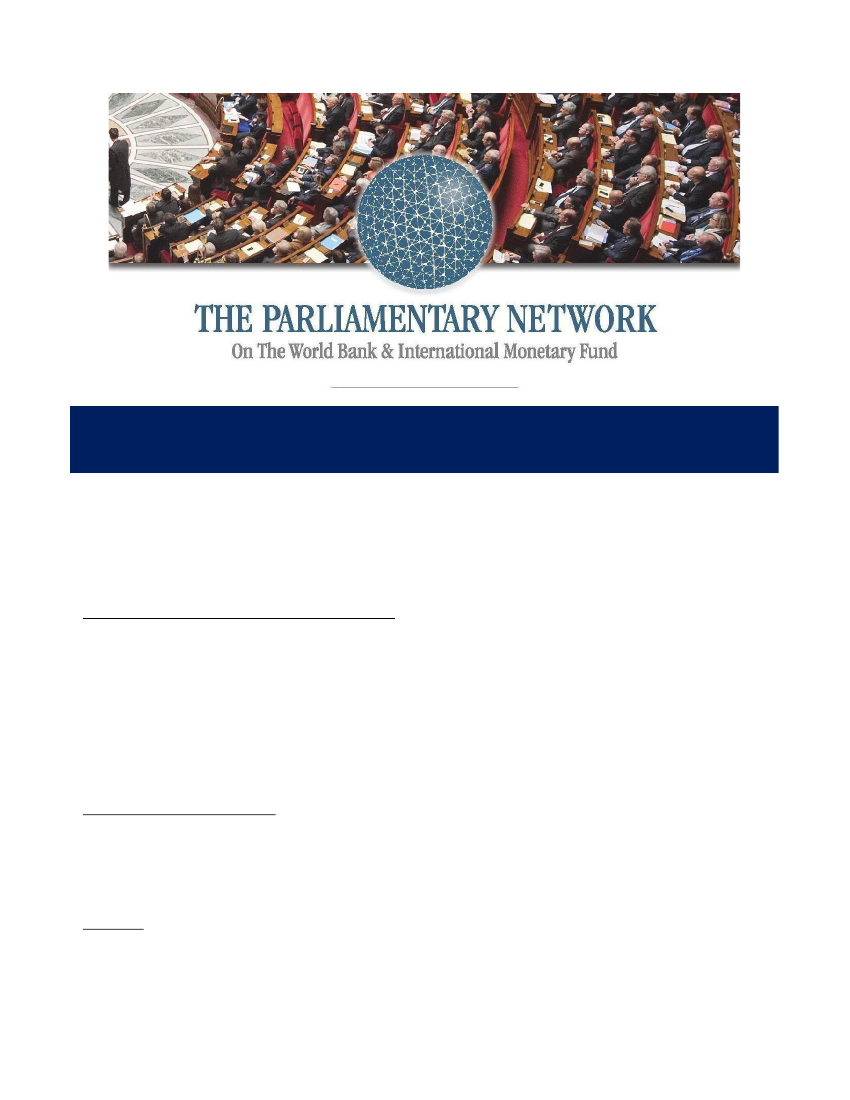
Guidelines for the creation of Thematic Chapters
WHY ESTABLISH NETWORK CHAPTERS?
A Parliamentary Network Chapter brings together a group
of parliamentarians who are committed to the Network’s mission and
principles. Chapters aim to strengthen the position of parliamentarians among international financial institutions and other
macroeconomic and development stakeholders. They can be local (national or regional) or thematic.
Direct engagement with local World Bank and IMF teams:
•
Members of the local Chapters get privileged and priority access to World Bank and IMF experts. Members can
participate
in consultations
in World Bank Country Partnership Frameworks (CPF), IMF Article IV consultations, as well as World Bank
and IMF operations, policies and individual projects.
The Chapter can also facilitate a
Question and Answer system
to enable you to submit any query you have on a World
Bank or IMF project or policy in a given country, region, or on a global scale.
The Chapter can also organize a
briefing for select committees of Parliament for World Bank and IMF experts
on a key
development or macroeconomic issue of your choosing.
When possible, the Parliamentary Network also facilitates access, for Chapter members, to
meetings with World Bank and
IMF senior Management
when they visit your country.
•
•
•
International parliamentary events:
•
As member of the Chapter, you are invited to take part in the
Global Parliamentary Forum,
which is organized on the
sidelines of the Spring and Annual Meetings in partnership with the World Bank and the IMF. Gathering over two hundred
MPs, the conference gives visiting parliamentarians a platform on which to engage with senior management and experts of
the IMF and the World Bank Group on pressing global development issues.
Field Visits:
•
Members of the Chapter will be invited to take part in the
Regional and International Parliamentary Field Visit
which offers
a firsthand look at World Bank projects and IMF policies on the ground in recipient and programme countries. These
visits offer a platform to
exchange views and experiences with international peers on successful development
policies. During the visit, you will also have the opportunity to meet with local high-level officials, development
stakeholders, civil society organisations/NGOs, youth leaders, think-tanks, academics, and private sector
representatives.